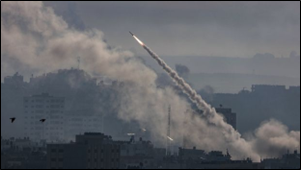Academy SITREP – War Between Israel and Hamas
October 7, 2023

What has Happened: Early this morning, Hamas militants launched a surprise attack on Israel firing thousands of rockets in a coordinated air and land assault. Israeli Prime Minister Benjamin Netanyahu said that his country was now “at war” and has retaliated with massive airstrikes on Hamas targets. Hezbollah, the Lebanese Shiite militia organization that fought a war with Israel in 2006, said that it was monitoring the situation but has not yet pledged its support to join forces with Hamas in this attack on Israel. An adviser to Iranian Supreme Leader Ali Khamenei said that Iran supported the cross-border operation ... Academy SITREP – War Between Israel and Hamas


